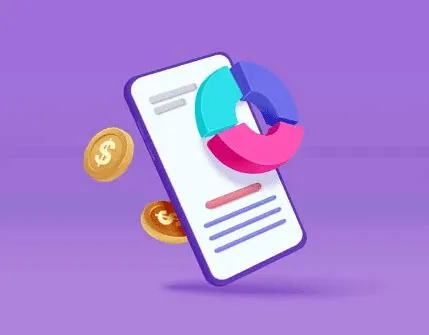Hey there! Ever feel like your mental health is a muscle that needs a workout just like your physical one? Well, you’re not alone. We all face stress, anxiety, and the occasional mental slump. But what if I told you there’s a whole world of pocket-sized personal trainers dedicated to boosting your mental fitness? I’m talking about mental fitness apps – your digital allies in the pursuit of a happier, healthier you.
Let’s be honest, life can throw some serious curveballs. Deadlines loom, relationships get tricky, and sometimes, the weight of the world just feels…well, heavy. That’s where these incredible apps step in. Think of them as your personalized mental health coaches, always available to guide you through the ups and downs. They offer a wealth of tools and techniques designed to help you manage stress, improve your mood, and build resilience.
But with so many apps out there, how do you choose the right one for you? It’s like navigating a candy store – so many tempting options! That’s why I’m here to break down the different types of apps, their features, and what you should look for. We’ll explore everything from meditation apps to those focusing on cognitive trends">behavioral therapy (CBT), mindfulness exercises, and even those that help you track your mood and sleep patterns.
Different Strokes for Different Folks: Exploring App Categories
The beauty of mental fitness apps lies in their diversity. There’s truly something for everyone, whether you’re a seasoned mindfulness practitioner or a complete newbie. Let’s dive into some of the major categories:
Meditation and Mindfulness Apps: These are your go-to apps for finding inner peace. They often guide you through meditation sessions, offer calming soundscapes, and teach you mindfulness techniques to help you stay grounded in the present moment. Think of them as your personal meditation instructors, available 24/7. Some popular examples include Headspace and Calm. They’re like having a pocket-sized spa!
CBT and Therapy-Based Apps: These apps use the principles of Cognitive Behavioral Therapy to help you identify and change negative thought patterns and behaviors. They’re like having a therapist in your pocket, although they shouldn’t replace professional help. Many offer guided exercises, journaling prompts, and personalized plans to address specific issues like anxiety or depression.
Mood and Sleep Trackers: Sometimes, simply understanding your patterns is half the battle. These apps allow you to track your mood, sleep quality, and even your activity levels, helping you identify potential triggers for negative emotions or sleep disturbances. This data can be incredibly insightful and empower you to make positive changes. Think of it as data-driven self-care.
Journaling and Self-Reflection Apps: Journaling is a powerful tool for self-discovery and emotional processing. These apps provide prompts and structured exercises to help you explore your thoughts and feelings, promoting self-awareness and personal growth. It’s like having a conversation with your inner self, guided by a supportive friend.
Beyond the Buzzwords: What to Look for in a Mental Fitness App
Navigating the app store can be overwhelming. So how do you choose the right app for your needs? Here are some key things to consider:
User-Friendliness: The best app is one you’ll actually use! Look for intuitive interfaces, easy navigation, and a design that feels inviting and accessible. Nobody wants a complicated app that adds to their stress!
Features: Consider your specific needs. Are you looking for guided meditations, CBT exercises, mood tracking, or a combination of features? Choose an app that offers the tools you’ll find most helpful.
Content Quality: Check reviews and look for apps with well-structured programs and high-quality content created by mental health professionals. Remember, you’re entrusting your mental well-being to this app.
Privacy Policy: Be mindful of your data privacy. Read the app’s privacy policy carefully to ensure your personal information is protected. Your mental health journey should be private.
Cost: Many apps offer free versions with limited features, while others require a subscription. Consider your budget and whether the paid features are worth the investment.
Integrating Mental Fitness Apps into Your Routine
Finding the perfect app is only the first step. Integrating it into your daily life is crucial for seeing real results. Think of it like starting a new workout routine – consistency is key! Here are a few tips:
Start Small: Don’t try to do too much too soon. Begin with short sessions and gradually increase the duration and frequency as you feel more comfortable.
Make it a Habit: Schedule time for your mental fitness routine, just like you would for any other important appointment.
Be Patient and Kind to Yourself: Progress takes time. There will be days when you feel more motivated than others. Be patient with yourself and celebrate your successes along the way.
Combine with Other Self-Care Practices: Mental fitness apps are powerful tools, but they’re even more effective when combined with other healthy habits like exercise, healthy eating, and spending time in nature. Think of it as a holistic approach to well-being.
The Bottom Line: Your Mental Health Matters
Your mental health is just as important as your physical health. Mental fitness apps can be incredibly valuable tools in your journey towards a happier, healthier you. They offer convenience, accessibility, and a wealth of resources to support your well-being. So, take the plunge, explore the options, and find the app that best fits your needs. Your mind will thank you for it!
Conclusion:
Mental fitness apps are no longer a luxury; they’re becoming an essential part of a holistic approach to well-being in the modern age. They provide a convenient and accessible way to build resilience, manage stress, and cultivate a healthier relationship with your mind. By understanding the various types of apps available and choosing one that aligns with your personal needs, you can embark on a journey of self-discovery and mental empowerment. Remember, taking care of your mental health is not selfish; it’s self-care at its finest.
FAQs:
1. Are mental fitness apps a replacement for professional therapy? No, mental fitness apps are not a replacement for professional therapy. They are supplementary tools that can support your mental well-being, but they shouldn’t replace the guidance of a qualified therapist, especially if you are dealing with severe mental health issues.
2. How much do mental fitness apps typically cost? The cost varies greatly depending on the app and its features. Many apps offer free versions with limited content, while others require a subscription fee, ranging from a few dollars to upwards of $10 a month.
3. What if I don’t have much time? Many apps offer short, 5-10 minute guided meditations or exercises. You can easily incorporate these into even the busiest schedules. Even a few minutes of mindfulness can make a difference.
4. How do I know which app is right for me? Consider your specific needs and goals. Do you want to reduce stress, improve sleep, or work on specific mental health concerns? Read app descriptions, reviews, and compare features to find the best fit for you.
5. Are my data and privacy protected with these apps? Always check the app’s privacy policy before downloading. Reputable apps will clearly outline how they handle your data and ensure your privacy.

